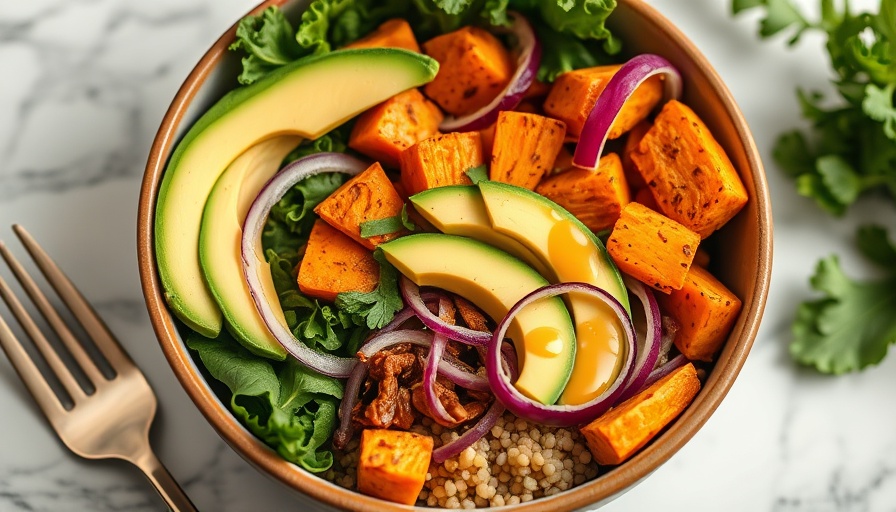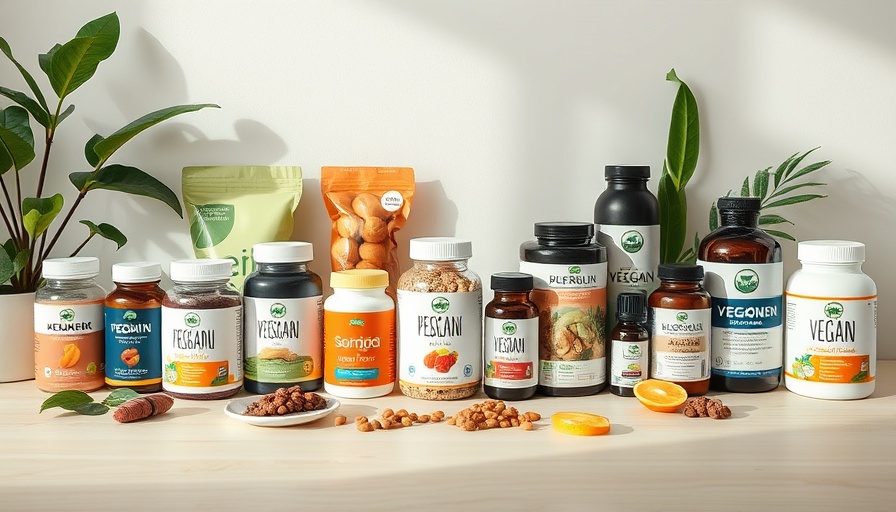
Understanding GLP-1 and Its Role in Satiety
Our body has a remarkable system for regulating hunger and feelings of fullness, primarily through hormones such as GLP-1 (glucagon-like peptide-1). Recent studies indicate that adopting a plant-based diet can significantly enhance the release of this satiety hormone, ultimately helping individuals manage their weight better. This connection raises a pivotal question: how does food choice relate to our innate hunger regulation?
The Power of Plant-Based Diets in Enhancing GLP-1 Secretion
Research has demonstrated that meals based on plant ingredients can substantially boost GLP-1 levels compared to meat-heavy options. When individuals with diabetes consumed a well-matched meal consisting of tofu versus a meat burger, GLP-1 levels soared by 42 percent after the vegan meal. This increase is noteworthy given that GLP-1 not only promotes satiety but also aids in blood sugar regulation, making it a critical focus for those managing diabetes or obesity.
How Satiety Differs Between Meat and Plant-Based Meals
While both meals in studies are designed to provide equivalent caloric content, the macronutrient profiles vary significantly. Meat-based meals, often higher in fat and protein, fail to stimulate the same hormonal responses as their plant-based counterparts. This discrepancy highlights the need for a shift in dietary approaches aimed not just at weight loss but at overall metabolic health.
Real-World Applications: Consuming Less Without Sacrificing Satisfaction
A fascinating aspect of plant-based eating is how it influences consumption behaviors. In trials, when participants were offered an all-you-can-eat buffet with plant-based meat alternatives, they consumed fewer calories but still reported feeling just as full and satisfied as those eating traditional meat. This aspect shows promising implications for weight management strategies, particularly for those struggling to control their intake.
Broader Implications: Why These Findings Matter
The implications of enhanced GLP-1 secretion and improved satiety could extend beyond individual weight loss, affecting public health initiatives aimed at reducing obesity rates. By shifting dietary recommendations to favor plant-based options, health strategies can harness the benefits of increased satiety and better metabolic control.
Practical Insights for a Healthier Lifestyle
Incorporating more plant-based meals into your diet can be a straightforward and effective step toward improved health and weight management. Consider experimenting with meat alternatives, such as lentils, chickpeas, and various whole grains, which can provide similar levels of satisfaction without the added calories from saturated fat.
Conclusion: A Call for Dietary Reassessment
Adopting a plant-based diet could lead to significant improvements in not just individual weight loss efforts, but also in overall health at a community level. The evidence suggests that such a dietary approach might be key to unlocking our natural satiety circuits, ensuring we consume less while feeling just as full. For those looking to make a change, embracing a plant-based lifestyle may be the first step toward achieving lasting health benefits.
 Add Row
Add Row  Add
Add 




Write A Comment